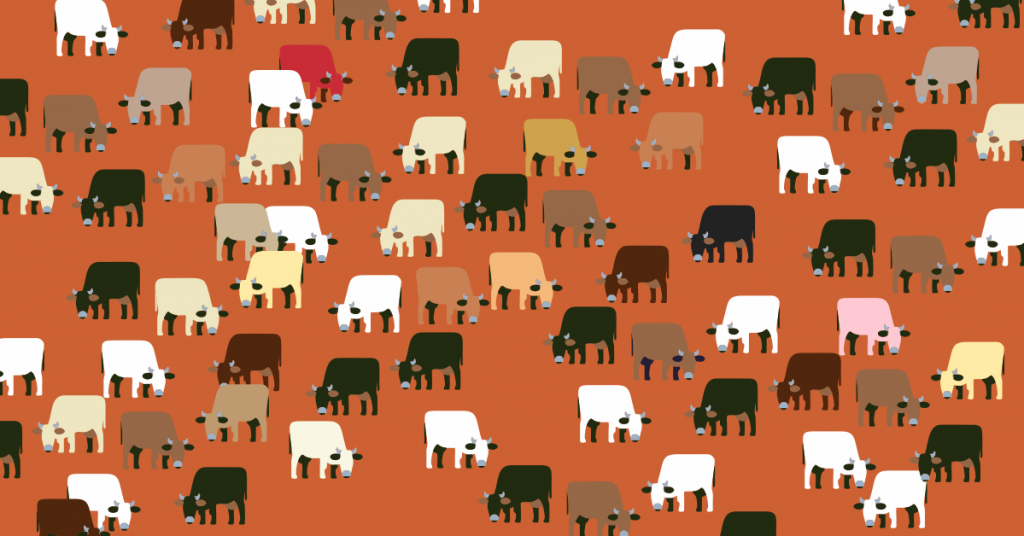In an environment that is fast getting vitiated due to increasing incidents of cow vigilantism and violence in the name of cow protection, it is a good idea to know about Cow Protection Laws in each Indian states. The Law has created both, the legal and institutional backdrop, within which gau rakshaks and lynch mobs can operate with impunity.
It is the protection and sanctity provided by laws against cow slaughter that have resulted in a close nexus between the local police and cow vigilantes, resulting in most of the lynching murders all over country. States with the strictest laws reported higher incidents of lynchings – nine cases in Haryana, eight in Uttar Pradesh, seven in Rajasthan, six in Jharkhand and five in both Delhi and Gujarat, together accounting for almost 54% of the total reported cases. Karnataka is an exception; high incidents (relatively) but not so strict laws.
This is why CJP demands an immediate repeal of unreasonable stringent, discriminatory, harsh and bad laws related to cow protection. To support our campaign to check violence in the name of cow, please become a member.
Here is a handy ready reckoner of these laws.
By deviously making a legitimate economic activity a crime, that is, by making transportation, sale and possession of beef a serious offence, these laws have effectively criminalised the consumption of beef in the pretext of banning cow slaughter.
There is no constitutional mandate to prohibit beef consumption, not on its transportation, sale or purchase.
The Directive Principles of State Policy encapsulated in Article 48 of the constitution that encourages states to “take steps for preserving and improving the breeds, and prohibiting the slaughter, of cows and calves and other milch and draught cattle” and is limited in its scope. First, it only relates to prohibiting slaughter of cattle and no other acts. Second, the purpose of such prohibition is only to “organise agriculture and animal husbandry on modern and scientific lines” and does not propose a blanket ban. The demand for a complete ban on cow slaughter and beef consumption has always been from a section of the upper caste Hindus; one that was rejected during the constituent assembly debates.
So it’s a step by step criminalisation. Once the consumption of beef is criminalised, the consumers of beef become cast as criminals; mainly Muslims but also Dalits, Christians and Adivasis. Beef eating has historically been the dividing line between caste Hindus and ‘others’, between cow worshippers and beef eaters.
Transportation of Cattle Criminalised
Jharkand: Transportation, sale or possession of beef and even abettment and attempt to commit the offence carries a minimum rigorous imprisonment of one year and upto a maximum of ten years
Rajasthan: “Offence” invites imprisonment upto five years
Uttar Pradesh: Transportation or sale of beef/cattle carries a rigorous punishment of upto seven years and merely attempting to commit the offence can entail upto three and a half years in prison
Uttarakhand: Transportation carries a a minimum of three and a maximum of seven years of rigorous imprisonment
Gujarat: Transportation carries upto three years of imprisonment is imposed for sale, transportation and even possession of beef
Haryana: sale of beef entails a minimum rigorous imprisonment of three years and upto five years
Goa and Punjab: Transportation and sale invites s two years of imprisonment for possession of beef
Delhi, Maharashtra and Madhya Pradesh the offence is punishable by one year of imprisonment.
Private Parties (Unlawfully) Empowered
“…Sections 16 and 17 of the 2015 cow protection laws (in many states –see detailed explainer below) empowers private parties, to help enforce the state’s draconian cattle laws. Similar is the case for Mahasrashtra and Gujarat. And Haryana Gau Seva Ayog, established to oversee implementation of cow protection laws in the state, has members that run cow vigilante groups, with several accusations of vigilante attacks.
STFs to Check Cattle Smuggling
Media Reports reveal that, in September 2016, the Haryana Police constituted Special Task Forces (STF) in the districts of Haryana to check cattle smuggling across the state. These STFs have been deployed on the borders of Haryana State adjoining western & southern Uttar Pradesh and on major highways – the GT Road connecting Sonipat, Panipat, Karnal and Kurukshetra; the Maneser-Palwal Expressway, connecting Gurugram, Mewat and Palwal; NH-2 connecting Palwal with Mathura and Agra; and NH-8 connecting Gurugram, Rewari and parts of Rajasthan border. Instances of killings by GRD have been reported from these areas.
Section 4 – Appointment of competent authority: The Government may, by notification, appoint a person or a body of persons to perform the functions of a competent authority under this Act for such local area as may be specified in such notification.
Burden of Proof
In many states the presumption is of guilt where the onus of proving innocence is on the accused and the offence has been made non-bailable. Where possession is prohibited, it has been made a crime per se, irrespective of the amount possessed and whether it is intended for sale or not. Provisions regarding slaughter tend to be even stricter and more draconian.
States With No Lynching
States like Arunachal Pradesh, Meghalaya, Mizoram, Nagaland, Kerala and Sikkim where there is no specific legislation prohibiting slaughter, no incidents of lynching or the like have been reported.
States where the prohibition (both complete or partial) is restricted to only the slaughter of cattle, the number of incidents reported was only 12. In comparison, a staggering 63 cases or 84% of the 75 incidents occurred in states where acts in addition to slaughter, like transportation, sale, purchase and possession of beef, are also criminalised.
Related:
Victims of Gautankwad: Alimuddin Ansari

